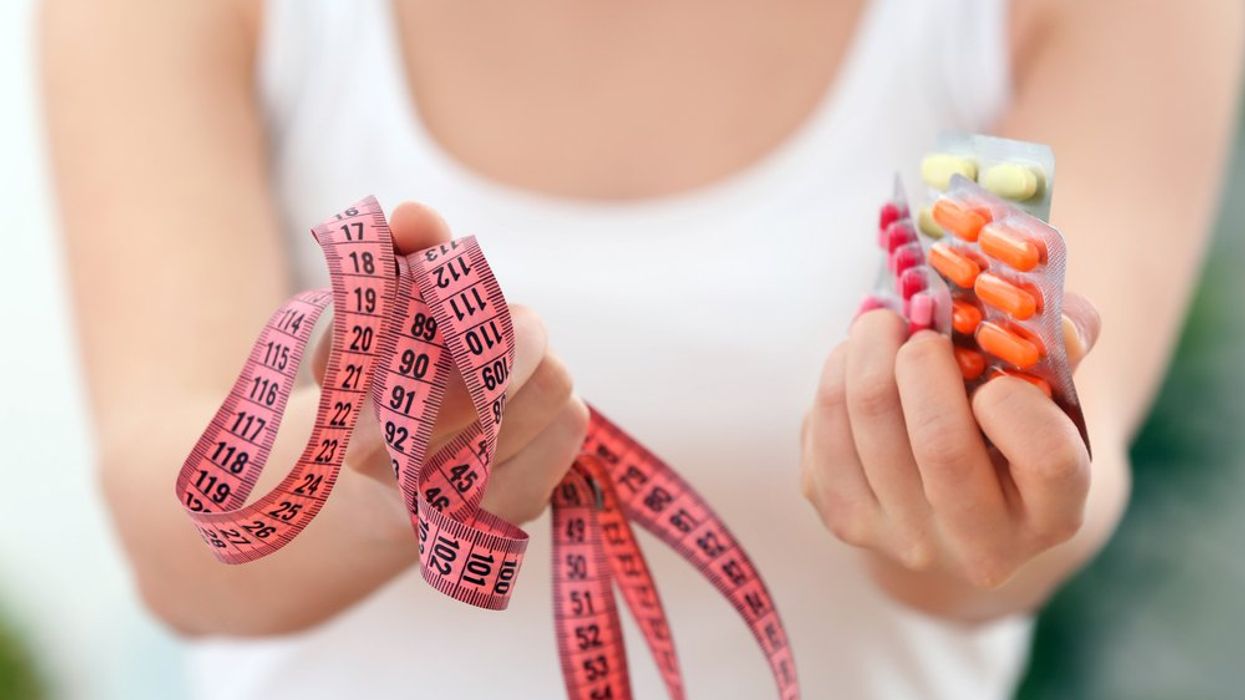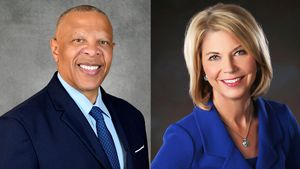Originally published by The 19th. Written by Jennifer Gerson
Nearly 1 in 10 adolescent girls have used non-prescription pills to lose weight, according to new research. The report, an analysis of English-language research, noted that teenage girls in North America were the most likely group to have used these so-called weight loss aids, and pointed out that these tendencies — and the mindset driving them — raise the risks for eating disorders and overall harm to physical and mental health.
Diet pills and supplements were the most commonly used non-prescription weight loss aid, followed by laxatives and then diuretics. The report— published in the American Medical Association’s JAMA Network Open — found that 6.1 percent of teens in the United States reported using these products in the past 30 days, with instance rates higher among girls and LGBTQ+ youth.
Amanda Raffoul, a specialist at the Harvard T.H. Chan School of Public Health and Boston Children’s Hospital who works to prevent eating disorders, told The 19th that critically, this research is the first summary of the existing research on adolescents use of non-prescription weight loss aids.
“Unfortunately, it’s not surprising that there are such high levels of weight loss supplement use in adolescents and in girls in particular,” Raffoul said. “The weight loss supplement industry is sort of the Wild West: It is incredibly unregulated. And because of that lack of regulation, the products are widely available everywhere for anyone to use.”
Raffoul added that the role of social media and influencer marketing is especially crucial in understanding the landscape that young people are understanding their bodies and nutrition in, especially when it comes to adolescent girls.
“If you open up any social media platform and do any sort of quick search for content related to weight loss or related to health and wellness, you’ll very quickly come across promoted content or advertisements for weight loss supplements,” Raffoul said. “I think that the dietary supplements industry has really taken advantage of the way that social media allows content and posts to be spread so quickly.”
She stressed that not only is there a “really strong body of research evidence that shows that non-prescription dietary supplements for weight loss don’t work” — but that these products can actively cause harm. The lack of regulation of the weight loss supplement industry means that products are often harmful — and sometimes even illegal — chemical substances. According to testing conducted by the Food and Drug Administration (FDA), many common over-the-counter weight loss pills have been found to contain sibutramine, fenproporex, fluoxetine, bumetanide, furosemide, phenytoin, rimonabant, cetilistat and phenolphthalein. These substances all carry notable associated risks of different kinds, and can prove fatal for certain people depending on other prescription medications they take or underlying health conditions.
“Most people assume that these products are natural, safe, and effective when the research evidence shows that none of those things are true,” Raffoul said.
The study’s authors highlighted the correlation between use of weight-loss products in girls and low self-esteem, parental influence to lose weight, self-body dissatisfaction and peer groups who value thinness
Nichole Kelly, the director of the Researching Eating and Nutrition to Enhance Wellness Lab at the University of Oregon and a psychologist who specializes in eating behaviors and body image beliefs, said that adolescence is a particularly vulnerable time for young people seeking out weight loss measures, due to the combination of a still-developing brain, an actively changing body, and societal pressure for thinness for girls. Girls are going through puberty, which means increases in fat mass in girls’ bodies, something that is a healthy and important part of their development at this stage.
This age is also marked by an increase in the importance of the opinion of peers, which are often “really harsh towards bigger bodies,” Kelly said, noting that weight and appearance are the top reason kids are bullied at school. Because of this, Kelly said, “it is easy to understand, in some ways, why people, and in particular adolescent girls, can become desperate to lose weight. It really says a lot about how larger bodies are portrayed and treated in real life and on social media.”
Kelly noted that since the pandemic, research has indicated simultaneous increases in weight gain, disordered eating, and mood symptoms like depression and anxiety — all happening at the same time that adolescents are also reporting an increase in weight-related teasing and bullying online. “I don’t think people fully understand the depth of the harm of this behavior, and the ongoing use of dangerous weight loss practices in girls is one example,” she said.
Kelly said that in her research, she is increasingly hearing from teachers that there is an “ever-present anti-fat dialogue among their students — calling each other names, calling their moms names.” It is essential that this behavior be called out and treated like any other discriminatory behavior, she said. Parents and teachers can play a critical role in intervention by making sure they help actively guide conversations about body ideals and weight loss by empathizing with the deep desire many girls have to look a certain way and acknowledging the amount of pressure they receive to do so.
The prevalence of weight loss supplements, Raffoul said, not only speaks to the “desperation” young women are feeling about needing to achieve certain body standards, but the degree to which many wellness influencers and the supplement industry “are taking advantage of what they know are the insecurities that young people face.” She points to the surge in popularity of berberine in the past year as an example of the way that influencers and marketers are acutely aware of the increased pressure young people feel to be thin, especially as prescription weight loss drugs like Ozempic dominate headlines.
“People were touting berberine, which is a dietary supplement, as ‘nature’s Ozempic.’ It was posed as this sort of almost natural non-prescription alternative to Ozempic, which is a drug that is monitored by the FDA, when in fact berberine as a supplement doesn’t achieve significant weight loss.”
Raffoul also pointed to New York becoming the first state in the country to ban the sale of over-the-counter weight loss and muscle building supplements to minors as a critical policy measure to address this crisis. New York’s ban on these supplements was signed into law by Gov. Kathy Hochul in October 2023 and goes into effect this April — legislation that was backed by Raffoul’s research organization at Harvard; similar legislation is being supported by the group in California, Maryland, Massachusetts, Missouri and New Jersey.

Video Source: Advocate Channel


















































